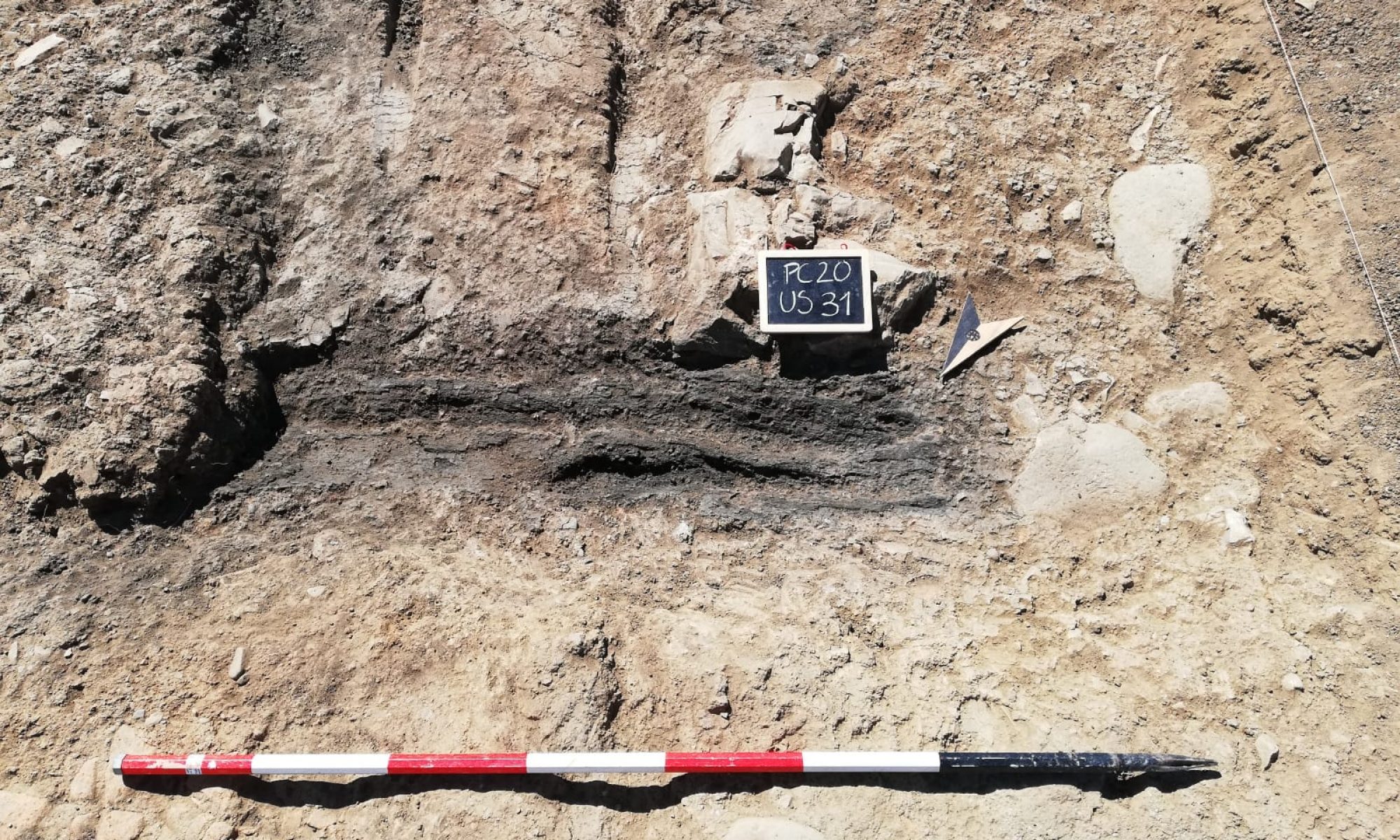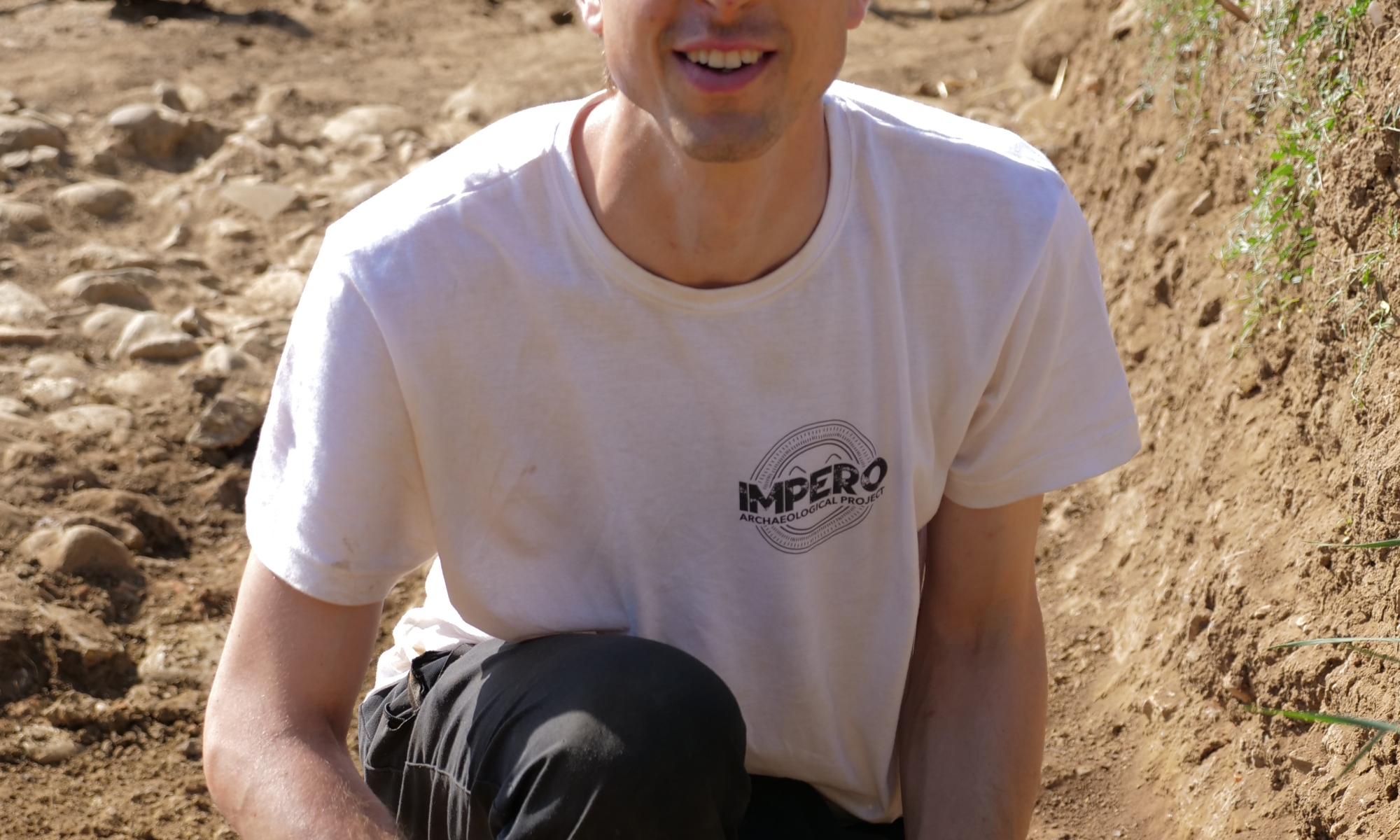With his fingertips lightly brushing the strings of a guitar or gently turning over pieces of ceramic, with his eyes simultaneously distant and attentive, brooding and kind, Joe inhabits a world of his own in the midst of an environment constantly under his gaze. This awareness is not a product of distance, however, but a means to closeness: In searching for intimate connections and “a level of sensitivity with people,” Joe observes how they interact with others; in an active sense, this positionality likewise allows the twenty-nine-year-old, first year PhD student at the University at Buffalo to occupy the role of the diplomat. At home, he stands as mediator between his five siblings; in a general sense, he attempts to hold the groups of which he is a part together, encouraging rapport and shared experience due to his love of being among others. This project, more than he could have expected, further allowed him to foster this skill as he found himself carrying greater responsibility in a more equitable, dynamic community than he had imagined both on site and during the exterior trips.
Simultaneously, this group focus does not hinder Joe’s comfort in his own self and appreciation of time spent alone; in fact, as he became more secure in his own ability and came to better know the area nearby and the work itself, these group settings became more manageable since, as Joe experienced in Japan when knowing, as he does in Italy, some of the language, security in oneself is invaluable for assisting others and navigating a group. Nevertheless, while this journey is only the third time that this lover of adventure has left the United States, having gone only to Japan and to Italy once before, he seems like a seasoned traveler already, and one would be hard-pressed to suspect that this security had not already been achieved.
Language itself, however, has meaning to Joe beyond its practicality. As a lifelong passion of his fostered likewise by his love of reading, he decided to study literature through a “Great Books” curriculum at Saint John’s College after graduating from high school at a young age. Although this program was broad, encompassing a double major in Philosophy and the History of Mathematics and Science alongside a double minor in Comparative Literature and Classics and Greek and French language requirements, he was drawn in particular to the works of ancient Greek authors, particularly those of Homer. He, therefore, set off to learn the language through as many related elective courses as possible in order to experience these texts on their own terms, just as he means to do when speaking to others in their own tongue. While he remarks that he is likely “fascinated by too many things,” linguistics holds a special place in his heart due to the “precision and the method that it brings to the study of language” and its more scientific paradigm; at the same time, Classics allows Joe the breadth that he desires despite respecting the importance of specializations: Even though, in his opinion, “people who are broad minded are broad minded even if…they’re doing some narrow focus,” Classics especially fosters variety due to the plethora of backgrounds and skills of its students and the plurality of potential directions to take within the field. As “Moses Finley said, ‘No one is really a Classicist’…it is too amorphous of a discipline, and…in Classics, you meet people who are into all kinds of things”—a fact which Joe deeply appreciates.
In the end, just as Joe strives for in his personal relationships through observation, the study of language enlightens Classics and other fields because it brings one closer to the people who speak it: “Language is one of the structures of daily life…and a lot is encoded in language that helps us understand each other” and that embodies cultural specificity since “there is no real standard form of any language.” While Joe is fascinated by dialect diversity and this lack of standard, he likewise attests to the universality of human experience within language, citing how recent studies in linguistics have highlighted the fundamental consistency of how humans use language. Just seconds after remarking on human nature and the brevity of our existence, Joe spoke of his own participation in the change of language—perhaps a pinprick in an already miniscule history, how he “enjoy[s] speaking other languages” not only aids him in understanding linguistic change, which he sees as impossible without this skill, but leaves visible impacts on those around him. In an excavation where cultures have the absolute potential to clash due to their differences, the efforts of Joe to speak to those around him in their own tongue breaks down barriers to intimacy and facilitates the maintenance of truer and better embedded relationships. “It’s really fun,” he told me before continuing from a deeper place: “It feels really precious…and…it’s exciting to me to make people aware of…how special…the way that they speak is…not just the way that they speak, but the way that they live…because people use language and don’t really know what they’re doing with it,” and this automation can sometimes prevent us from being aware of how we express our lived condition through our language. For this philologist, the act of translation gives him a similar sensation of being a part of something larger, particularly through feeling the disparity between how we imagine lived speech to have been and the language of that period’s literature: “You can see how far literature is from daily life, but then…the light…shines through” the gaps—negative traces revealing the lives of the past. Taking what awareness and skill that his shared time between the Linguistics and Classics departments of the University at Buffalo has lent him, Joe hopes to continue these threads of inquiry through a project advised by professors across both departments that will focus on non-standard forms of classical languages which “will require…looking closely at local cultures”; thus, archaeology and even Joe’s participation in the IMPERO Project likewise have roles to play in this mission: “studying ancient literature closely usually leads into studying regional cultures, and archaeology is absolutely necessary” to be put into play with following language change through ancient texts.
In the present moment, however, Joe is deeply in tune with another universal human language: Music. Coming from a musical family where all of his siblings received the gift of his parents, his brother began to teach Joe guitar when he was a young child, and this artistic spirit continued to teach himself blues and a bit of jazz guitar. This background fostered his ability to improvise with others as he did with me mere minutes after the conclusion of our interview on the garden steps, overlooked by hammock-bearing trees. Further, in line with his personality that is both group-oriented and appreciative of time spent alone, Joe sees music as having the potential to foster intimacy as well as solo contemplation: Even though he is more used to playing music for himself, Joe finds that, ”when it works to bring other people together, it’s the best”; in fact, for this lover of language, music may be more fundamental to the human condition than the words that we speak. “Music has always been about expressing something, risking something,” and Joe tailors his playing to the satisfaction that it gives him in the moment rather than to higher expectations—for him, this universal tongue is truly a felt experience, one in which he can “free his mind” and be at peace. While his strings can bring this tranquility and speaking Italian can bring him connectivity and happiness, he also enjoys to “talk to people and [to] get them to open up,” both strangers and friends, “just to have moments where we’re…so far from home…but, oddly…comfortable…[and where I can] learn about people in a special way.” In a far cry from the isolating, though intermixed, environment of Los Angeles that he used to call home—where his only “medicine” to cure the distance between souls was learning to dance Tango—Italy has proven a place where Joe can become more intimate with those around him, in turn, helping to foster proximity high up on the hill.
From the angle of adventure rather than peace, this trip has likewise allowed Joe to explore in ways that he is largely unable to at home, both in physical adventure through unseen towns or the adventure itself that is “seeing how things emerge on site,” and to participate in a form of labor that he is just beginning to “scratch[] the surface of.” Finally, the child Joe who “would make objects and…pretend to find them” has grown into a man able to truly live out his fantasies of discovery, to incorporate “the freedom of walking and exploring” that keeps him sane into the beautiful spontaneity of archaeology’s labor. With eyes crinkled and calm, nestled above a near-perpetual smile that loves to be surprised by the souls whom he encounters, the gravel paths of Monteverdi will remember the traces of his footfalls; just as he has left imperishable traces on the hearts of his new friends, nearby ancient towns and our sites alike will record his sly laughter and his hands upon their walls.
Text by: Elisabeth Woldeyohannes
Photo by: Emma Ramacciotti

